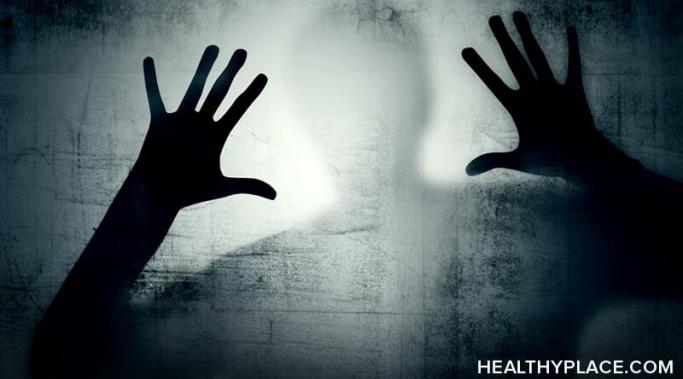Saying goodbye is never easy, especially when you've enjoyed where you've been and are uncertain about where you're going. As one of the writers of "Anxiety-Schmanxiety Blog," I'm grateful to have had the opportunity to write about my anxiety journey, but it's time for me to say goodbye.
Anxiety-Schmanxiety
There's so much expectation on everyone during the holidays; to spend money, eat food, make food, drink, be festive, be jolly, be happy, want to be happy, and so on. Being such a chaotic time of year, it's no surprise that people get anxious before, during, and after the holidays. Keeping a gratitude journal helps keep me grounded, especially during the holidays.
I have three children -- two daughters and a son. They're adults now with busy lives and stresses of their own. My adult children are exceptional individuals. I love and respect them as I know they love and respect me. Why, then, do I get anxious when I need or want to speak to them, ask them about their lives, or talk about something important to me?
Symptoms of dissociation can be terrifying. One night, I had horrific acute, prolonged panic symptoms, and in an out-of-body utter state of confusion, I looked at my husband and asked, "Are you going to have me committed?"
The combination of confrontation and anxiety is a significant issue for me. We've all had to make that dreaded call to customer service to report an issue. Something has gone wrong, so you're already ticked off, but you do your best to proceed politely. Or, at least, I do. Most times, the issue is resolved quickly and with minimal upset. But then there's that one frustrating experience where nothing goes right, and the resolutions are unacceptable, which triggers so much anxiety that you feel you'll either explode or simply shut down.
Growing up, I left the room when my parents turned on the nightly news. I had no interest. Besides, it was all bad news, or so it seemed: wars, fires, shootings, murders, robberies, injustices, bickering politicians, and so on. No, thank you, I had anxiety around the news.
Nobody likes cleaning. Wait. That's not right, because I've known people who enjoy cleaning as it provides a sense of accomplishment or something else I can't comprehend. Not me. I hate cleaning. I especially hate the big jobs. They give me anxiety. Of course, I procrastinate, the job gets bigger, and my anxiety increases. So, I procrastinate some more. And I do it again and again. It is a circle of procrastination and anxiety that eventually must be tackled.
I sleep a lot. I always have. From a certain point of view, I'm lucky that I can sleep, but it's rarely enough. This was worse when I had young children to look after, plus a house, a spouse, and a full-time job that had me up nights resolving issues. Like so many working people worldwide, my remedy to combat sleepiness and fatigue was to guzzle coffee. But I'm retired now, a young retiree at 57. I had hoped to be full of energy without the burden of full-time work. I thought once I retired and got ample regulated sleep, that the feeling of sleepiness would go away. It hasn't.
I wrote many blog posts this past year about my struggles late last summer with weeks of acute panic and anxiety that left me traumatized. I attended weekly therapy and worked hard for almost a year to get to a point where I could finally revisit the place where the worst of the trauma occurred, which I did, successfully. With that said, I'm wondering if therapy still makes sense for me.
Nobody is perfect. Another way of saying that is: everybody makes mistakes. They're an opportunity for growth—something about failing forward, or, without mistakes, there is no progress, and so on. Some people take their mistakes in stride, learning the lessons and moving forward, seemingly unconcerned. As for me, whenever I make or may make a mistake, I deal with anxiety bombs of varying sizes that go off inside me, rendering me twitchy, edgy, and generally a mess.









